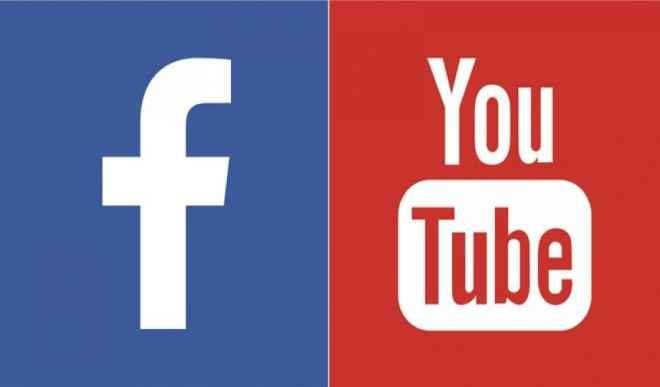After Facebook, YouTube may be next!
In the wake of the events of the past few weeks involving Facebook and Cambridge Analytica, coupled with the incidence of fake news and the Russian meddling in elections, folks in enlightened societies have begun re-evaluating their relationships with the social media (SM) companies. Apparently we’ve passed the excitement stage of the Internet, and are […]


In the wake of the events of the past few weeks involving Facebook and Cambridge Analytica, coupled with the incidence of fake news and the Russian meddling in elections, folks in enlightened societies have begun re-evaluating their relationships with the social media (SM) companies. Apparently we’ve passed the excitement stage of the Internet, and are moving to the stage of asking critical questions from our SM companies. We have seen one data breach after another. Yet, at least according to Facebook, the usage level of the platform is still quite high. There is no alternative as of now, so SM will continue to be around, at least in the interim.
The European Union (EU) is obviously in the forefront of protecting the rights of its citizens, and may be able to help manage the situation for Europeans. Mark Zuckerberg, the CEO of Facebook appeared before the U.S. congress two days last week to tell Americans about his company’s handling of people’s privacy data and its use for committing harmful activities such as fake news propagation and election meddling all over the world. Some consumers are of the opinion that heavy fines should be levied against Facebook, as a punitive measure.
Honestly, I don’t know if it is because of the young age and therefore inexperience of the Mr. Zuckerberg and his team at Facebook, but they need to change their views of the world. That is, they need to know that it’s a dangerous world out there, and naivety will only hurt everyone. Just imagine the political instabilities that have been catalyzed by SM platforms and the affront on democracy everywhere. I guess SM companies like Facebook never realized how powerful their platforms are until the events of the past two years. It has been reported that when Zuckerberg first learned of the Russian meddling in the U.S. election, his statement was: “That’s weird,” obviously the disposition of someone who is clueless about the extent to which his tool could be used for malicious intents. It’s certainly a wakeup call for Facebook.
The trove of data that Facebook collects on you will stagger your imagination. One New York Times columnist, Brian Chen, recently ventured to download the information that Facebook has on him. He was shocked. This is what he said in his 11 April 2018 article in New York Times: “With a few clicks, I learned that about 500 advertisers – many that I had never heard of – had my contact information, which could include my email address, phone number and full name. Facebook also had my entire phone book, including the number to ring my apartment buzzer. The social network had even kept a permanent record of the roughly 100 people I had deleted from my friends list over the last 14 years.”
Mr. Chen continues: “One surprising part of my index file was a section called Contact Info. This contained the 764 names and phone numbers of everyone in my iPhone’s address book. Upon closer inspection, it turned out that Facebook had stored my entire phone book because I had uploaded it when setting up Facebook’s messaging app, Messenger. This was unsettling. I had hoped Messenger would use my contacts list to find others who were also using the app so that I could connect with them easily – and hold on to the relevant contact information only for the people who were on Messenger. Yet Facebook kept the entire list.”
Moreover, be aware that Facebook never forgets. “Facebook also kept a history of each time I opened Facebook over the last two years, including which device and web browser I used. On some days, it even logged my locations, like when I was at a hospital two years ago or when I visited Tokyo last year.”
One rather disturbing thing is that once Facebook grabs your data it never let go – even if you delete your Facebook account! So when you delete something, the platform just removes it so it’s not visible or accessible on Facebook!
If you think Facebook is bad in mining your data in the manner described above, try Google. For Mr. Chen, Google has over a thousand times more data on him than Facebook does. Obviously, these data would have come from using Google products: gmail.com, YouTube, Chrome, Google+, Hangout, the Android operating system on your phone, and perhaps any data supplied to apps that run on your phone.
This is why some people are suggesting that Google (YouTube) will be the next company to be on the hot seat with federal regulators. There are news items that YouTube is illegally collecting data from underage kids; that 45% of kids between the ages 8 and 10 – I believe in the U.S. – have their own YouTube accounts. Moreover, there are reportedly 20 different groups that are complaining that YouTube could be profiting from this, with the suggestion that YouTube exploits kids when they login to their parents’ accounts, by asking them to provide information that adults might have resisted. Somehow the platform can tell if the user is a kid, based on contents perhaps.
Needless to say that some discipline is called for on the part of the social media platform user.
